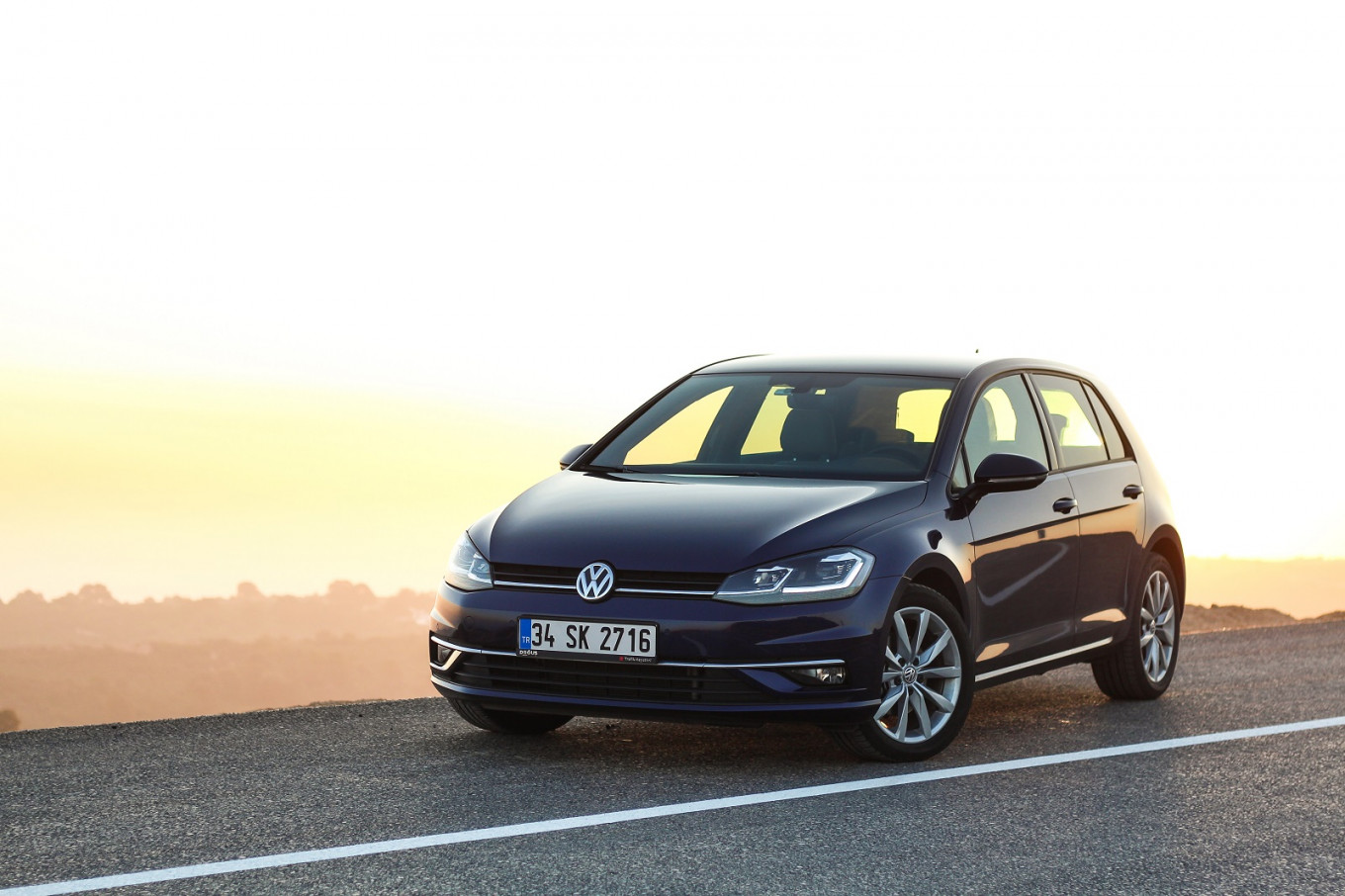Popular Reads
Top Results
Can't find what you're looking for?
View all search resultsPopular Reads
Top Results
Can't find what you're looking for?
View all search resultsCars become the place for passengers' private moments
As wagon models become scarce and the U.S. becomes more enamored of sport utility vehicles, there’s another type of car that’s going away, too: the convertible.
Change text size
Gift Premium Articles
to Anyone
V
olkswagen AG announced that 2019 would be the last model year the Golf SportWagen and Alltrack, the automaker’s station wagons, will be produced for the U.S. The German company has sold wagons in the U.S. since 1966, starting with the Type 3 “Squareback” model. “Customers are speaking clearly about their preferences — it’s an SUV world now,” the company said in a news release. The data agree with VW, as I noted last year.
As wagon models become scarce and the U.S. becomes more enamored of sport utility vehicles, there’s another type of car that’s going away, too: the convertible. Five years ago, convertibles made up less than a percent of U.S. auto sales, according to Edmunds; through the first four months of this year, they were barely six-tenths of a percent of total sales.
Convertibles are also a shrinking percentage of total vehicle models available in the U.S., in a market with nearly 400 different models.
Five years ago, convertibles made up more than 14% of total models available in the U.S. Today, they’re barely 8%.
Station wagons and convertibles are probably as far apart on the spectrum of practicality as they can be, and convertibles’ diminished presence in buying behavior is a testament to the appeal of the SUV at the expense of other models. SUVs are probably more comfortable than a convertible for a long slog through commuter traffic, and they’re considered safer, too (though perhaps at theexpense of those outside the vehicle).
I’m not quite willing to say that SUVs will take over the world, though. In a driving-as-a-service future that also includes autonomous vehicles, the needs and wants of passengers may become more important than those of drivers. NTT Docomo Inc., which operates a vehicle-sharing service in Japan, recently noted some fascinating customer behaviors. A 2018 survey of 400 users found that 1 in 8 rented automobiles for purposes other than transportation:
An overwhelmingly large number of respondents said they slept or rested in vehicles, followed by customers who said they used cars as spots to talk with friends, family and business clients on the phone.
People also rented vehicles to watch TV in, get dressed up for Halloween, practice singing, rapping and English conversation, and even do facial stretches said to reduce the size of their face, NTT found.
“Cars can be used for private space,” said the NTT Docomo official in charge of the study. “People used our vehicles in more ways than we expected.”
If the car is a private space — whether moving or not — then is an SUV the ideal manifestation of that space? A minivan might be better for that purpose, or the reborn and electrified iconic camper van, which VW describes as “at home anywhere.”
Read also: Driverless cars could impact industries linked to sex
Design researcher Jan Chipchase, in a 2014 essay of concepts in autonomous mobility, says autonomous vehicles will inspire not only new human behaviors, but also new forms of automobiles that can accommodate or embrace them. One of his concepts is the “Highly Private Moment," the term used in corporations to describe highly private activities that take place in vehicles.
Expect to see a variety of hacks to temporarily disable sensors such as internal facing cameras. As a side note, if you want to introduce discussions on taboo activities into a corporation, reduce it to a generic TLA or FLA that is open to wide interpretation. e.g. VPMC = Very Personal Media Consumption. The rise in opportunities for compelling HPMs will lead to a seismic shift in physical vehicle design, sold or more mundane pursuits.
The station wagon and the convertible are diminishing in American automotive life and culture. I don’t know if they will disappear — but I’m also not sure that the SUV conquers all in the end. Expect more new vehicle types that will meet demand for the car as private space.
Nathaniel Bullard is a BloombergNEF energy analyst, covering technology and business model innovation and system-wide resource transitions.
This column does not necessarily reflect the opinion of the editorial board or Bloomberg LP and its owners.











